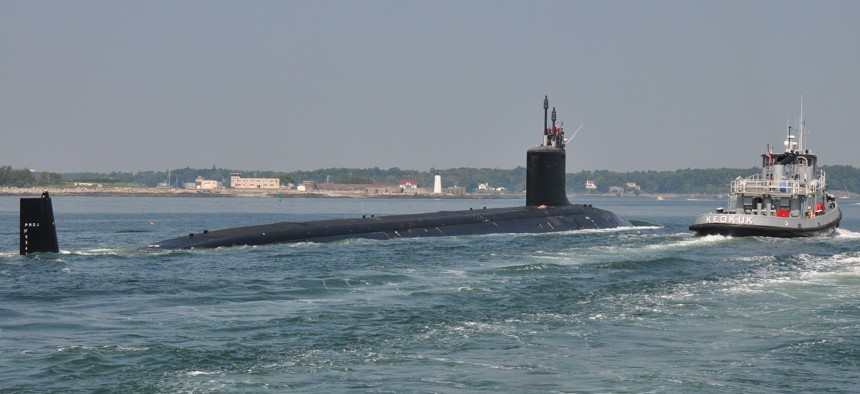US reviews export controls in Britain, Australia for high-tech arms sales exemptions

A security partnership between the U.S., Australia and the U.K. will allow for Australia to acquire Virginia class nuclear powered attack subs. U.S. Navy photo
A State Dept. official told a House panel that work to align AUKUS partners with U.S. export control requirements is ‘going very well'.
U.S. officials are working “around the clock” with their counterparts in the United Kingdom and Australia to ensure that the three nations can safely share emerging technologies to deter threats across the Indo-Pacific, a top State Department official said on Wednesday during a House Foreign Affairs Committee hearing.
Bonnie Jenkins, State’s undersecretary for arms control and international security, told lawmakers that the U.K. and Australia are quickly moving to comply with requirements included in the fiscal year 2024 National Defense Authorization Act that are meant to strengthen the trilateral Australia-U.K.-U.S. — or AUKUS — security and technology partnership.
This includes a mid-April deadline for President Joe Biden to exempt the U.K. and Australia from International Traffic in Arms Regulations, or ITAR. An exemption would allow for an "whole nation defense trade exemption" which would speed the exchange of technologies among the three security partners.
Rep. Michael McCaul, R-Texas, said ITAR exemptions enable the U.S. to “deploy cutting-edge technology with our closest partners,” adding that exempting the U.K. and Australia “will allow us to develop and build the most cutting-edge military technologies, like hypersonics” in tandem with the two countries.
Jenkins called AUKUS “a prime example” of U.S. leadership on the world stage, noting that the current security landscape — including Russia’s invasion of Ukraine and China’s increasingly bellicose posture toward Taiwan — “requires innovation and creativity.”
Since passage of the FY24 NDAA, Jenkins — who also leads coordination for the AUKUS partnership — said the three nations “are making great strides within AUKUS on export controls, fostering an Indo-Pacific ecosystem and supporting operational readiness and interoperability.”
Jenkins told lawmakers that discussions are “going very well” with the two other nations and that “we're doing what we need to put in place all the steps that have to happen so that we can certify” that the countries’ export controls are comparable to the U.S. She noted that this process typically takes 6-12 months, but that they are quickly moving to meet the April deadline.
Jenkins added that the U.K. has already passed legislation to streamline the process and that “Australia has a couple of bills that they're getting through their processes.”
Jenkins said the export control review and exemption processes are important to the partnership because the U.S. government needs to secure its vital intellectual property — particularly when it comes to its defensive capabilities and emerging technologies — from hostile nations.
“We know that there's countries like China who want to steal information and AUKUS — because it's going to be a very strong, interoperable process of not only submarines, but emerging technologies — is going to be a very interesting place for countries like China to try to steal our technology,” Jenkins said.
AUKUS has already enabled the U.S. to share nuclear-powered submarines with Australia and a strengthening of the countries’ use and development of emerging technologies. The Pentagon announced earlier this month that the AUKUS partners tested the effectiveness of robotic ground vehicles last year as part of an effort to identify vulnerabilities in the systems when subjected to electronic warfare attacks.






